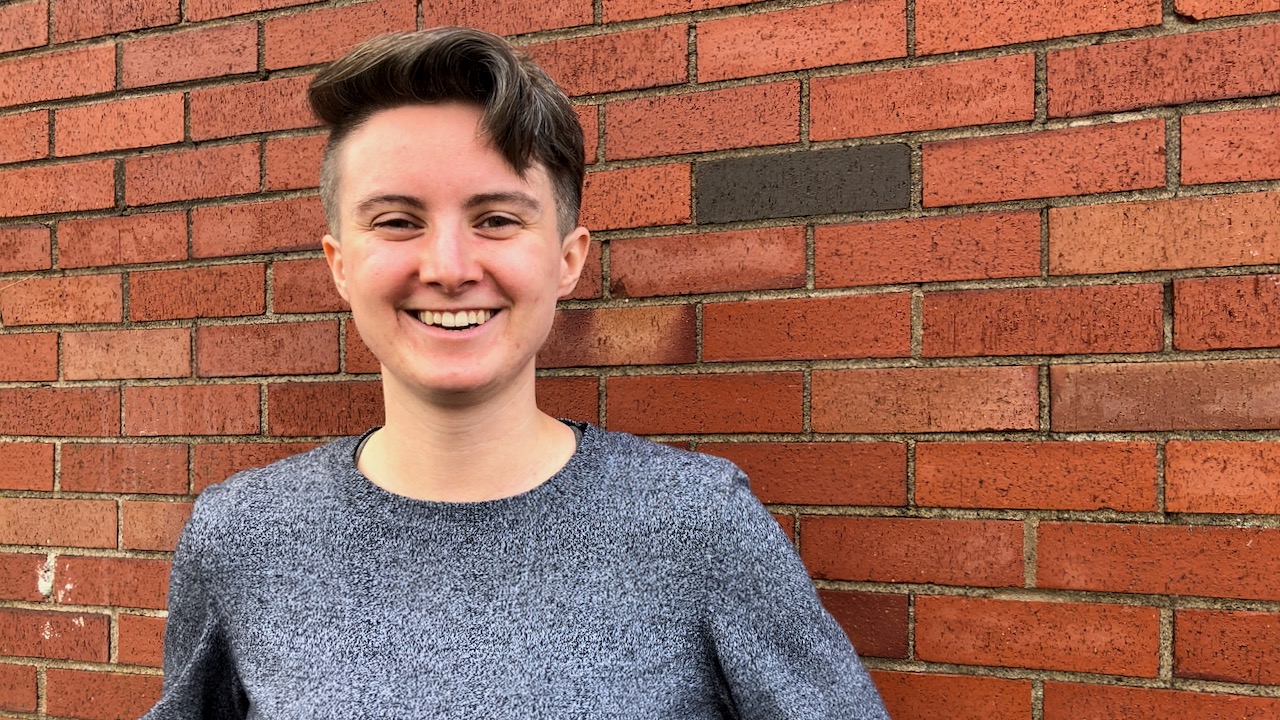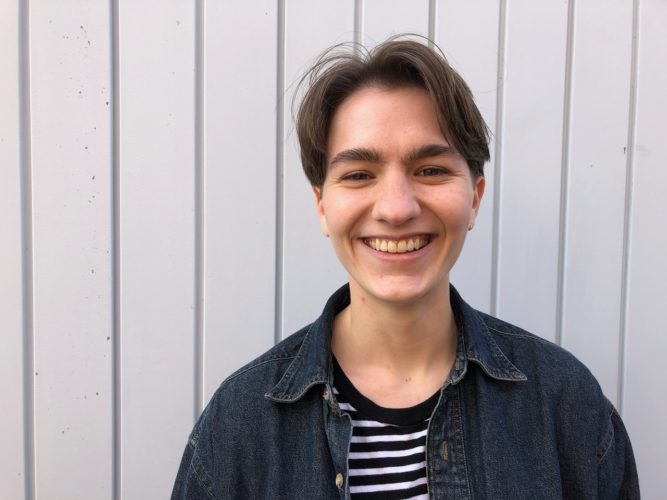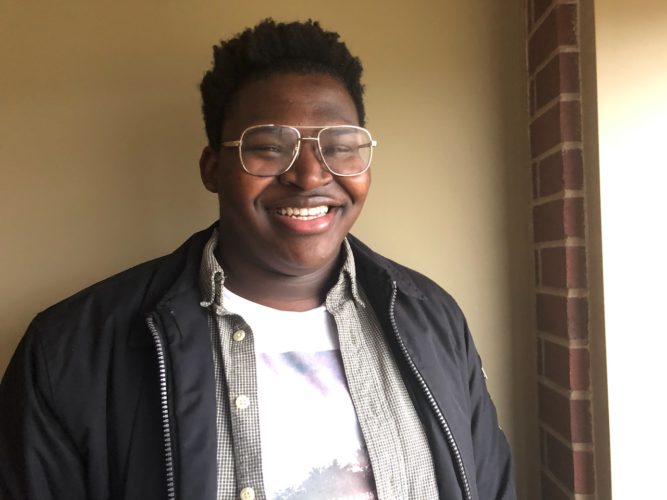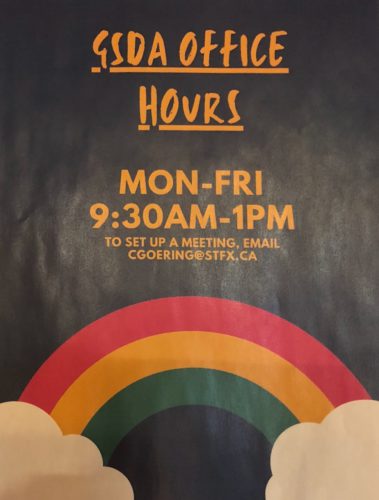2SLGBTQIA+ youth are more stressed and depressed than others during the pandemic: study
The pandemic could be widening an existing gap in mental well-being

caption
Bre O'Handley is one of the researchers behind a new study measuring interpersonal coping during the pandemic.A study of how Canadians are coping with the COVID-19 pandemic has revealed 2SLGBTQIA+ youth are reporting higher levels of depression, anxiety and stress than their non-2SLGBTQIA+ counterparts.
Bre O’Handley, a master’s student in psychology at Trent University, and her supervisor, Dr. Karen Blair, are two of the lead authors of a report called COVID-19 Pandemic: LGBTQ+ Experiences.
“When people see reports like this, their first response is that everybody’s having a difficult time,” O’Handley said in an interview. “And that’s true, nobody’s really thriving during COVID-19. But there definitely seems to be unique stressors for LGBTQ people that are resulting in this disparity of mental well-being during this time.”
The report summarizes information gathered as part of a larger study conducted through St. Francis Xavier and Acadia universities. Researchers surveyed over 2,000 Canadians about their mental and physical well-being, COVID-19 related behaviours and concerns, and social supports. While it was open to anyone to participate, there were specific questions for populations of particular interest, including 2SLGBTQIA+ people. Related stories
According to the study, 2SLGBTQIA+ participants scored higher (22.15) than non-2SLGBTQIA+ participants (13.62) on a scale from zero to 84 measuring depression, anxiety and stress. 2SLGBTQIA+ participants also scored higher (29.79) than non-2SLGBTQIA+ participants (20.69) on their experience of PTSD symptoms related to the COVID-19 pandemic.
O’Handley said 2SLGBTQIA+ people also reported experiencing less social support during the pandemic.
“LGBTQ people reported being equally close with their friends, but less close with their families than non-LGBTQ people,” O’Handley said.
Many younger 2SLGBTQIA+ people reported that they struggled without the support systems they had found at their universities.
Cut off from supportive communities
That research supports what Claydon Goering has been hearing from students and friends in the 2SLGBTQIA+ community since the pandemic hit. Goering has been the gender and sexual diversity adviser at St. Francis Xavier University for the past two years.
“More and more students are coming to university fully out as their authentic selves, which is great,” Goering said, “but for a lot of students, that’s a process that happens in university and throughout that experience.”

caption
Claydon Goering is the gender and sexual diversity adviser at St. FX University. They have been helping 2SLGBTQIA+ student’s navigate university life and the pandemic.When the schools shut down last March and students had to return to their family homes, Goering said, they weren’t always returning to the most supportive environments.
“For a couple of trans students who I know,” Goering said, “when they go home they’re being deadnamed, they’re being mis-gendered, because they’re not out to their family, or they’re only out to certain family members, and so they have to keep that aspect of their identity concealed.”
Goering offered online drop-in sessions to 2SLGBTQIA+ students after they had to leave last spring, but said they weren’t well attended.
“They didn’t have access to my office space,” Goering said, “and that physical space seems to be so vital — just having a room to go into where you’re able to close the door on the dominant culture has been so important to students that I interact with.”
Henderson Cartwright, a fourth-year St. FX student and president of X-Pride, couldn’t return to his home in the Bahamas last March. He said lockdown was a bit of a blur for him. He got very sick with a non-COVID related illness that kept him out of commission until mid-summer. He had one other friend still in town but rarely got to see her. He said once he recovered he kept himself busy planning for X-Pride and other committees he’d be organizing in September.
Since the return to campus this fall, Cartwright said members of the LGBTQ+ community at St. FX have been sharing their lockdown experiences. He said they all found it really hard to have their community ripped away without any warning.
He described one friend who returned home but wasn’t ready to come out to their family.
“They kind of had to revert back to who they were before they left in order to appease or not upset anybody. And that took a toll on them mentally,” Cartwright said.
He spoke of the “cognitive dissonance” he and his friends feel when they are forced to behave for family or strangers in ways that aren’t true to who they know themselves to be.
“It kind of messes you up mentally, because on one hand, you know that that’s not you anymore,” he said, “but on the other hand, no one else knows that.”

caption
Henderson Cartwright, a senior at St. FX, is the head of the X-Pride committee this year.He has experienced it when returning to his home in the past.
“Back at school, you’d be like, ‘this who I am — out and proud!’ But when I get back home, I immediately regress into like this quiet and not outspoken person,” Cartwright said. “And it sucks because you probably feel like a lot of guilt for hiding yourself. But it’s also a self-perseverance thing.”
Cartwright said his friend told him that if they were forced to go home again, they wouldn’t survive.
“They’re literally saying they would commit suicide,” Cartwright said, “because they just hated it there.”
Reduced access to gender affirming services
Another stressor 2SLGBTQIA+ people are facing in the pandemic is difficulty accessing gender affirming products and treatments.

caption
A poster for St. FX’s gender and sexual diversity adviser’s office hours found in the St. FX student’s union building.According to the Pandemic Experiences study, 25.8 per cent of trans and non-binary participants were in hormone replacement therapy (HRT) before the pandemic, and 40 per cent of them had their access to that therapy change. Of the 7.9 per cent who were about to begin HRT, 78.6 per cent reported that their ability to begin had changed. Everyone who had a gender reassignment surgery scheduled said their ability to proceed had been affected by the pandemic.
A 2SLGBTQIA+ COVID-19 resource guide from prideHealth, a partnership between the IWK Health Centre and the Nova Scotia Health Authority, warns that many health services for transgender and gender diverse people are currently on hold, particularly for those looking to start gender affirming hormones or have gender affirming surgery.
“Why isn’t gender affirming care considered an essential service when it’s literally life-saving?” Goering said.
“For a lot of folks, the dysphoria … is something that causes immense amount of distress among trans-people and trans-youth.”
Some silver linings
But there have been upsides to the pandemic for 2SLGBTQIA+ youth.
O’Handley said some study participants reported that they have more access to queer and trans events now that they have been forced online. One younger rural participant said it’s easier to tune in online to a drag show than to ask a parent to drive them an hour into the city. Another participant with a physical disability noted they no longer were excluded from events because of inaccessible venues.
And even the isolation has had some positive effects. Goering said that a lot of their friends and the wider 2SLGBTQIA+ community they connect with online have said the isolation created a space in which they could think more deeply about gender.
“There’s an influx of people coming out as non-binary or trans because they’ve had that alone time with themselves,” Goering said.
“That really made them consider what parts of their gender they were doing for themselves, versus what parts of their gender they felt like they had to perform for others.”
As for Cartwright and the X-Pride committee, while the pandemic has meant most of their usual events had to be cancelled and he missed the chance to attend the Halifax Pride Parade, he’s not totally discouraged.
“We’re still all here,” Cartwright said. “You know, we might be a little disconnected for a while, but it’ll get back to where it used to be. I believe in us.”
About the author
Rose Murphy
Rose Murphy is a multimedia journalist in Nova Scotia. She is interested in stories about unusual characters, small business, resilient communities,...
